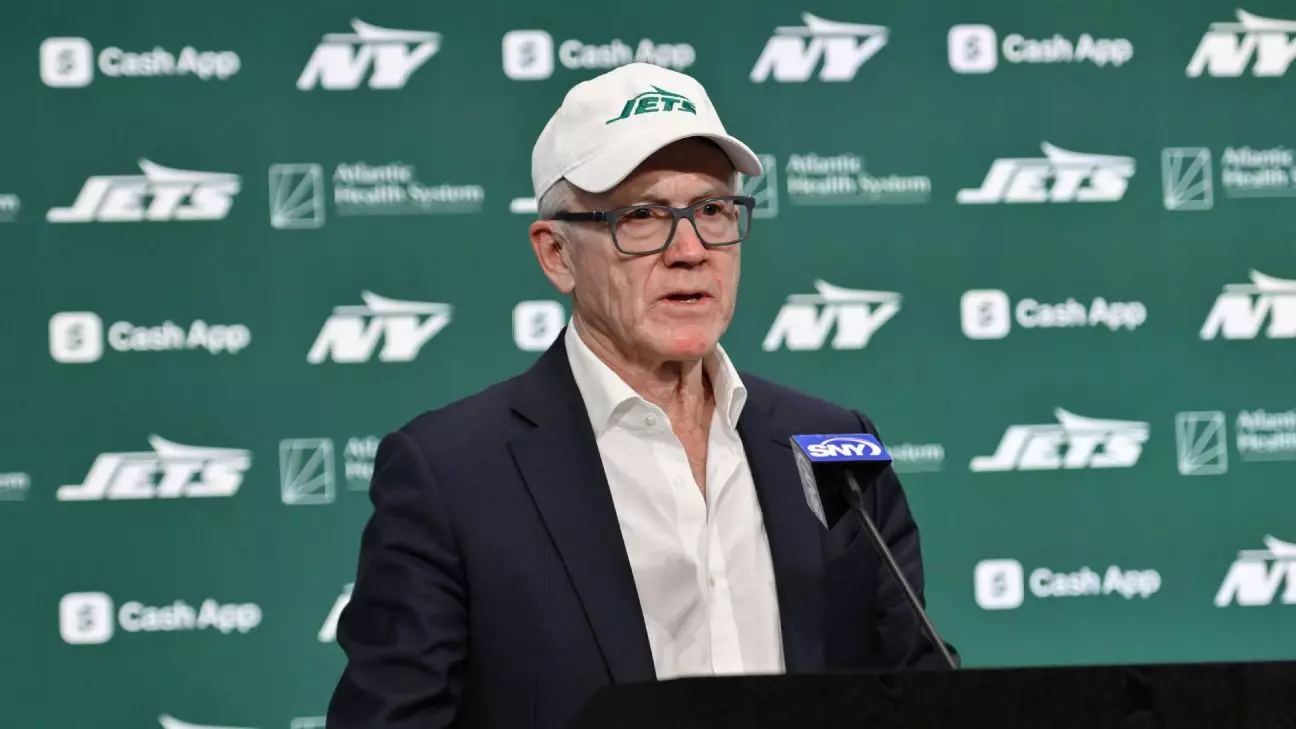In a striking revelation, players from the New York Jets have issued a damning indictment of owner Woody Johnson following a season fraught with frustration and unmet expectations. The annual report card released by the NFL Players Association serves as an alarming wake-up call, revealing that Jets players awarded their ownership an unprecedented F grade. This unflattering mark makes the Jets the only team in the league to receive such a low score, reflecting deep-rooted discontent within the locker room. The survey, which polled nearly 1,700 players league-wide, has provided an unfiltered view into the widening rift between the Jets’ players and management.
The implications of this discord are significant, especially when viewed through the lens of overall performance. The Jets fell from a respectable 21st in the previous year’s rankings to a troubling 29th in 2024. This steep decline showcases more than just a poor win-loss record; it underscores systemic issues that pervade the organization. With ownership cited as a primary concern, players have expressed frustration regarding “top-down problems.” Such observations suggest a perceived lack of effective leadership from Johnson, raising questions about the strategic direction of the franchise.
At the heart of the report are mounting grievances related to team culture and player welfare. The ownership’s grade plummeted dramatically from a B- to an F, which reflects a growing sentiment among players that their concerns are not only ignored but sometimes exacerbate existing issues. The NFLPA highlighted the Jets’ controversial decision to slash the food budget, following previous criticism regarding their food program. This not only reflects a disconnect between management and players but highlights deeper cultural challenges within the organization where supportive measures are seemingly disregarded.
Johnson’s decision-making has come under critical scrutiny, particularly his mid-season firings of coach Robert Saleh and general manager Joe Douglas. These abrupt actions were a departure from the norm in a franchise that had not witnessed such mid-season upheaval in a quarter-century. His choice to bring in defensive coordinator Jeff Ulbrich as a replacement proved ill-fated, resulting in disastrous outcomes on the field. The Jets’ dismal finish of 5-12 only amplified the perception that Johnson’s hands-on approach to leadership is more detrimental than beneficial.
Interestingly, while players graded head coach Ulbrich with a B, this was still below average at 25th place. This apparent contradiction reveals an interesting dynamic; players recognize the challenges but still show some level of respect for Ulbrich’s efforts amidst the turmoil. However, Johnson’s increasing involvement in personnel decisions has caused unrest, indicating an organizational culture that may be resistant to constructive feedback.
In response to these criticisms, Johnson has acknowledged the need for improvement, stating, “I have to look in the mirror, and I have to be a better owner.” This public acknowledgment is a step towards accountability, yet the question remains whether it will lead to meaningful changes. The challenges facing the Jets are not merely about wins and losses; they are fundamentally tied to the culture and environment fostered within the organization. As the team looks ahead to the upcoming seasons, it is imperative that ownership not only listens to player feedback but takes concrete actions to remedy the concerns raised. Failure to do so may result in further decline, both on and off the field.


Leave a Reply